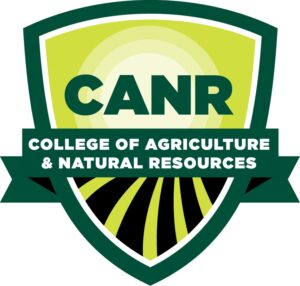Aug 29, 2024
Global food safety experts hosted at MSU event
Michigan State University (MSU) recently brought leaders in food safety innovation, research and policy from across the globe to a July food safety conference.
The speakers discussed issues and topics related to food safety and food security during the Global Food Safety Symposium.
The July symposium, hosted by MSU’s College of Agriculture and Natural Resources (CANR), brought more than 70 attendees from 24 countries, to collaborate on critical issues and emerging trends in the food safety landscape through keynote addresses and interactive panel discussions with leading field experts.
The symposium also celebrated and coincided with the 25th anniversary of the International Short Course in Food Safety. The International Short Course in Food Safety is a one-week MSU program that addresses growing global concerns about food safety amidst increasing demand and international trade complexities.

The program covers topics including the impact of food systems on international trade, regulatory and policy issues and the identification and management of hazards in food production. Incorporating field visits to food processing sites in Michigan, the program offers participants practical insight into real-world practices and aims to empower participants to navigate the complex challenges facing food safety by providing them with the necessary knowledge and experience to affect change in their home countries.
Karim Maredia, director of CANR International Programs and a longtime facilitator of the food safety short course, believes the program is key in educating and connecting leaders in food safety to help affect positive change.
“Food safety is a global issue and education in this area is crucial,” Maredia said in a news release. “We’ve trained more than 800 food safety professionals, which has created an excellent global network that is actively collaborating to make a difference.”
Allan Liavoga, a food safety research associate with CANR, participated in the short course in 2008 and has since contributed to food safety programs in Kenya and across Africa. He credits the program for shifting his approach to food safety best practices and enhancing his understanding of evidence-based science in regulatory decision-making. Liavoga said the exchange of knowledge and collaborative partnerships fostered by the program have been vital in enhancing systems in Africa.
“Over the years I’ve spent time building regulatory systems in Africa, and understanding the American system and processes has been useful for the African countries trying to build their systems,” Liavoga said in the release. “The Americans are also learning from us and how we’re trying to tackle our problems. This is important because food safety in Kenya is also food safety in the U.S. as you have food moving from one country to another. From an African perspective, having worked in capacity building, programs like the short course must be sustained for sharing knowledge and experience because food safety in one country affects impacts others.”
Looking ahead, Maredia envisions expanding the program’s reach and leveraging global expertise to enhance impact.
“In the future, we are looking at taking this program overseas, to offer it in different regions of the world. We’d also like to develop some online components, utilizing expertise not only from MSU and the U.S. but also international expertise, to broaden our global reach,” Maredia said.









